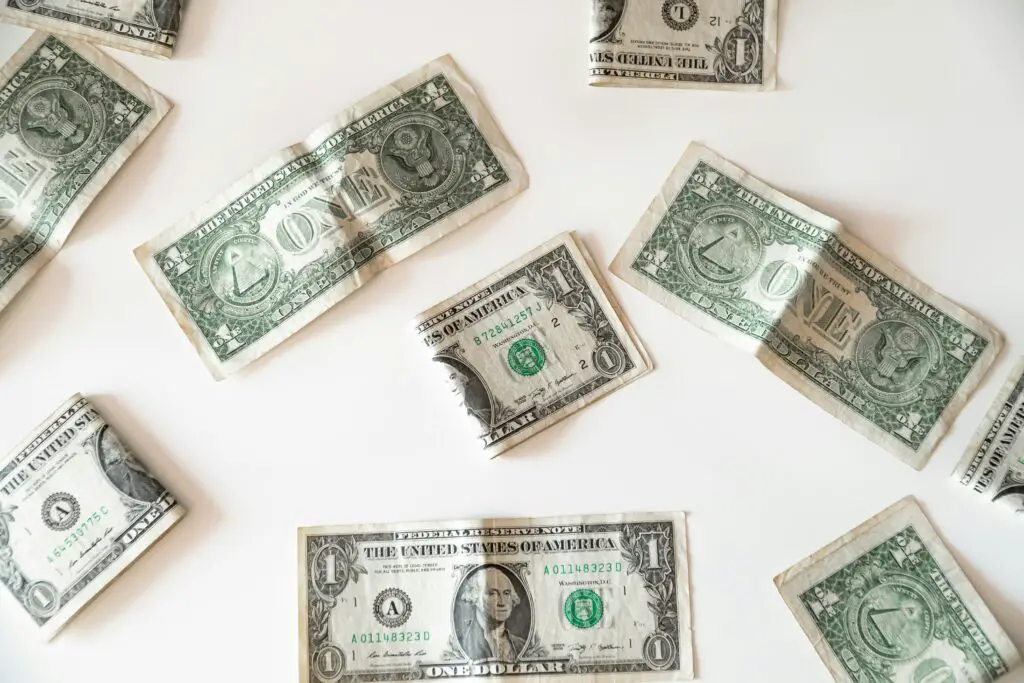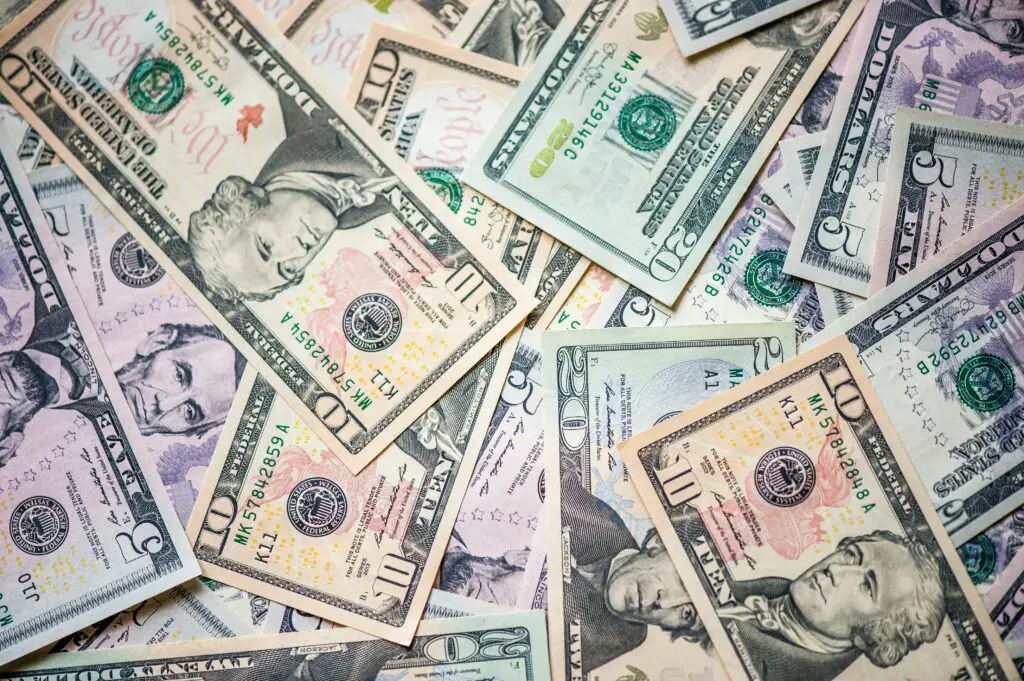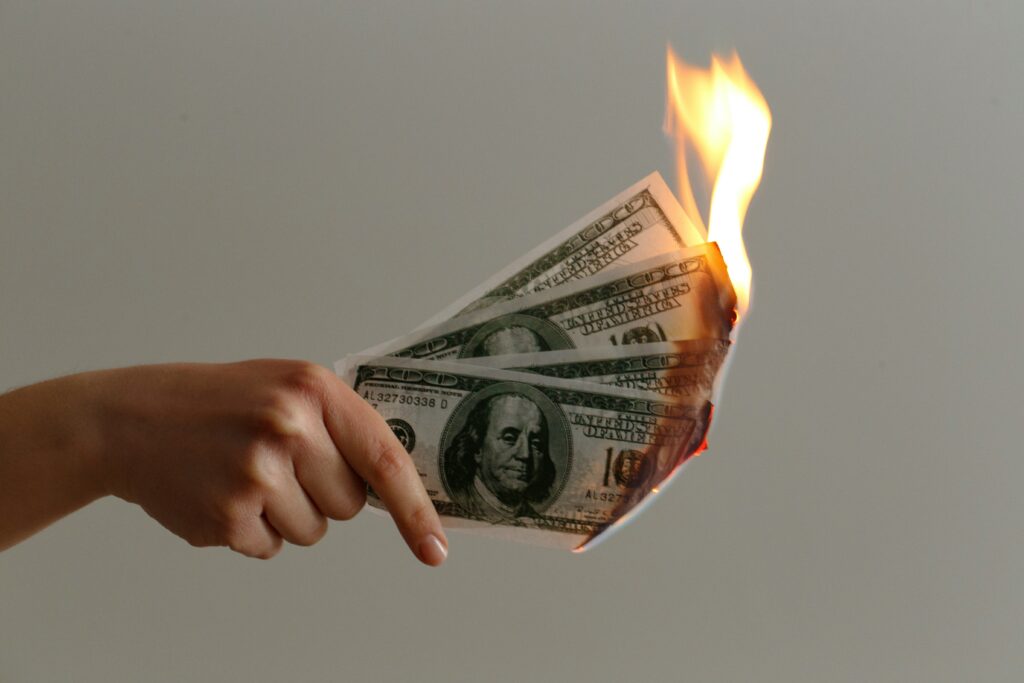The old saying goes, “Money is what makes the world go round.” For this to be true, money also must be in usable condition. The topic of damaged money can be a confusing one. The intentional defacement of money is technically illegal. At the same time, people may accidentally have their money damaged through accidental events like flooding or fires. Regardless of how people damage money, they often want to redeem their damaged bills. Do banks replace damaged money? In what cases is damaging money truly illegal?
If you ask questions like this, keep reading. Today, we will discuss how to replace damaged money and how U.S. law handles damaging money.
Aspiring Influencers Rip a Bill: Is It Illegal?
In a recent reaction video by attorney Ugo Lord, we see two influencers flexing some of their hard-earned money. They start the video by dancing to some music. In the excitement of the situation, one throws $100 bills in the air. Taking it a little too far, the person throwing the money grabs a bill and rips it in half. The other influencer quickly stops dancing and begins to yell at his partner. The clip ends with the man yelling, “We’re not rich! We’re broke!”
Individuals can get help with damaged bills in the United States through various services. If a bill is only slightly damaged, you can usually bring it to the bank for a replacement. Banks commonly offer this service. If the damage is more severe, such as when the serial number is illegible, you can still attempt to replace the bill through the federal government. In most cases, the government can successfully replace your damaged money.
Regardless of whether you can replace them, damaging bills is still illegal, as shown in the video. Damaging bills or coins that you are intending to exchange is a crime. It is unlikely that the federal government would conduct an in-depth investigation to see whether the people in the video were responsible for the damaged money, so they could likely get a replacement. Nonetheless, it is still important to understand laws about the defacement of money.
Do Banks Replace Damaged Money?

If you find yourself with some damaged bills, don’t worry! Damaged money is surprisingly common for banks and the government to deal with. Bills naturally wear out, tear, or even get graffiti after repeated use. Multiple banks and federal systems evaluate damaged money to determine if it is fit for circulation.
How to Replace Damaged Money
If your damaged money is still legible, there is a good chance that you can replace it at your local bank. Banks generally accept damaged bills if they are still 50% or more intact. Likewise, serial numbers and other identifying features must be present to replace a bill at your local bank.
For cases where more than 50% of your bill is damaged or missing identifying features, you should submit a reimbursement request through the Bureau of Engraving and Printing (BEP). The BEP handles thousands of replacement requests yearly and has specific guidelines for processing them. For example, they do not accept bills that show signs of malicious mutilation or attempts at fraud.
These basic steps apply to damaged bills only. Most sources cite that damaged coins are handled by the U.S. Mint.
Mutilation of Bills and Coins

It is illegal to deface or destroy U.S. currency purposefully. People commonly refer to the process of destroying currency as the mutilation of bills and coins. As described earlier, deliberately mutilated currency generally affects the question, “Do banks replace damaged money?”
18 U.S. Code § 333 states it is illegal to cut, mutilate, deface, disfigure, or adhere bills or bank notes together. Specifically, the law focuses on defacing bills to pass them off in a fraudulent way. Nevertheless, people generally understand that defacing bills in any manner is illegal. If authorities find you guilty of defacing bills, they can sentence you to up to 6 months in jail and impose fines.
18 U.S. Code § 331 outlines the laws regarding the disfigurement of U.S. coins. This law prohibits any attempt to mutilate, deface, or disfigure U.S. coinage with the intent to use them fraudulently. Unlike the law for bills, this law emphasizes fraud and has stricter requirements. For this reason, authorities do not prosecute actions like crushing pennies on railroad tracks or using souvenir machines to flatten coins. Similarly, creating coin rings or jewelry is allowed, as the coins are not used fraudulently after alteration. If found guilty of fraudulently defacing coins, you could face up to 5 years in prison and fines.
Final Thoughts On Damaged Currency
U.S. currency is an essential material. It is what allows us to exchange goods and maintain our economy. There are multiple currency defacements and fraud laws that prevent fraudulent destruction and use of the U.S. currency.
At the end of the day, defacing money, whether fraudulent or accidental, is not advised. It is highly unlikely that the government will investigate your damaged money, especially if it is only $100. Regardless, understanding the importance of money and the laws behind its use is incredibly important and could save you from a legal headache in the future.

